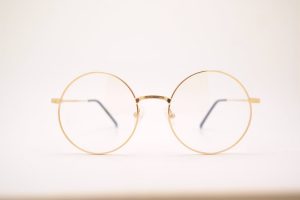- “Love yourself!”
- “Breath…!”
- “Let it go…”
Are you annoyed yet? Especially if you feel chronically tired, overworked, or stuck in the rut. Or, perhaps, you struggle with ADHD, bipolar disorder, depression, anxiety, chronic pain, relationship issues, facing uncertainty of losing a job, or … (fill in the blank). In those states we are disconnected from the executive function of the Prefrontal Cortex (PFC), leaving us feeling reactionary and short-tempered. All well-meaning advice and positive self-talk falls short and feels fake.
Why is it so?
Considering that we are pre-wired for “negativity bias”, even a healthy, happy individual is seldom a champion of self-compassion (not to be confused with self-centeredness). Rick Hanson writes that it takes a ratio of 5 to 1 of positive experiences to counterbalance negative ones to create an equilibrium state. Biologically our brains are trained to scan for danger so we may survive. “The brain is the organ that learns, so it is designed to be changed by your experiences.”

If we paused and smelled the roses five times and stepped into dog poop once, we’d be fine. Life, however, usually works in reverse. We are predisposed to be self-critical, self-judgemental, shameful, resentful, frustrated and simply unkind to ourselves due to our past experiences.
So, what’s the solution?
- Education: “Know thyself”.
The phrase is inscribed at the entrance to the Temple of Apollo at Delphi in Greece. “Circa 440 BC the Oracle of Delphi said that there was no one wiser than Socrates, to which Socrates said that either all were equally ignorant, or that he was wiser in that he alone was aware of his own ignorance.”
A few years ago I visited Monreale Cathedral in Sicily. Looking at the clock tower I saw the inscription in Latin: “Tuam Nescis”, which translates to “You don’t know yourself”. It struck me as a most eloquent and true expression. Fortunately, we have a drive for curiosity and neuroscience is coming up with more brain discoveries than ever, merging ancient traditions with science. When we understand our biology we can start applying reverse engineering to these findings.
-
Develop your inner resources:
Attention. Awareness. Acceptance. Allowance. Appreciation.
Dr. Hallowell, an expert on ADHD, offers an analogy: the brain is the board, memory is the nail, attention is the hammer that drives the nail into the board. What we pay attention to turns into a long-term memory, that’s how memory works. The story you tell yourself – part of your long-term implicit memories – becomes your theme and a lens through which to view the world. It is also known as Neural Darwinism: the survival of the busiest.

With awareness, we can direct our attention like a hammer. Accepting what’s going on rather than resisting allows us to
soften our response to a situation. It is almost a paradox, just like Carl Rogers (1902-1987), a humanistic psychologist said: “The curious paradox is that when I accept myself just as I am, then I can change.” Allowing ourselves to feel the feelings can open us up to new possibilities.
Appreciation for your humanity, for your miraculous brain, for your capacity to breath, for gravity itself is a sure way to get that 5:1 ratio revved up. A sense of gratitude goes far: we literally change our biochemistry by engaging into the ‘feel-good’ states! It goes beyond positive affirmations – it brings the body to homeostasis.
So, forgive your own humanity, give yourself a hug, trigger yourself into compassion at every opportune moment. Even if you are tired and annoyed, it’s OK. You are only human.
To learn how to hone your attention and awareness and further develop your inner resources, visit: www.neurosculptinginstitute.org and www.vijarogozina.com.
 Vija Rogozina
Vija Rogozina
Vija is an international educator with meditation experience of over 20 years. Born in Latvia, Vija has lived and worked in the Netherlands, UK, Thailand, India, Colorado and currently lives in Seattle, WA. She speaks four languages fluently and one day hopes to master one more. She is a certified Neurosculpting® Facilitator & Tier 2 Fellow, and has a B.A. in Social Work and a B.A. in Communication. She studied at the University of Leeds, UK, School of Social Work in Latvia, University of Utrecht in the Netherlands and the Academy of Film and TV in Delhi. Vija has practiced meditation in varying forms since her late teens and undergone Buddhist study with Sakyong Mipham at the Shambhala Buddhist Center. She is also a 200 hour certified Kids Yoga instructor, a visual artist and a published author. Vija came to her first Neurosculpting® class with Lisa Wimberger in 2011 when she was faced with unaddressed PTSD and ADD patterns. Neurosculpting® has helped Vija to create a more integrated path in her professional and personal life. Always a seeker, Vija has been pursuing knowledge of human condition and self-discovery, especially after having a spontaneous out-of-body experience and multiple dream visions. A single parent and wellness entrepreneur, she walks her talk and applies self-awareness skills daily. She is in constant awe of unlimited human potential and is honored to be able to share powerful Neurosculpting® tools in the Pacific Northwest and globally. She works with private clients and groups, improving her clients’ journey through life. Email: moc.liamgobfsctd-4366a3@anizogorajiv, Website: www.vijarogozina.com

